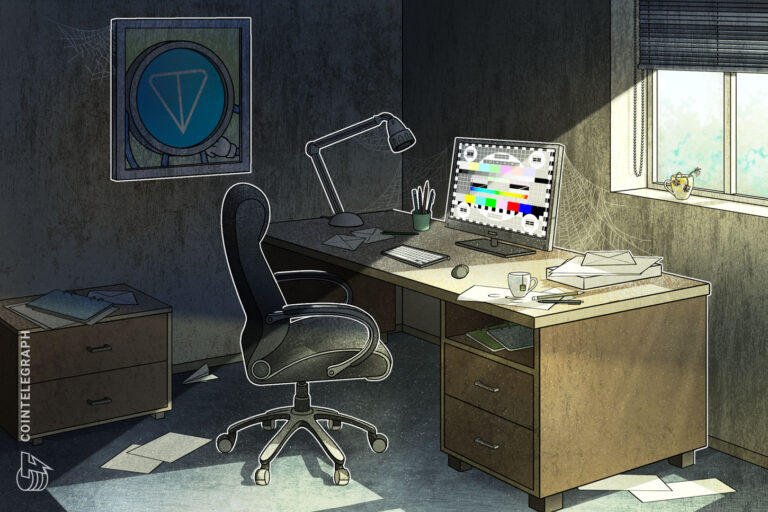
[ad_1]

At the start of July, Telegram announced it was discontinuing its support for the test network of Telegram Open Network in what seems as yet another — possibly the last — sign that the company is leaving its blockchain project for good.
Telegram chose to abandon TON as a result of a drawn-out legal battle with the United States Securities and Exchange Commission, which apparently was close to convincing the court that TON’s private $1.7 billion initial public offering was an unregistered securities sale. So, does the latest development mean that TON is dead? Developers of independent TON-based projects don’t think that’s the case.
Telegram cuts ties with TON
Telegram-lead TON was an open-source project, and its entire code was published on GitHub in September 2019. Designed as a blockchain platform aimed at facilitating payments and hosting decentralized applications beyond Visa’s scalability levels, TON and its in-house cryptocurrency, Gram, were going to be integrated into the Telegram messenger app, which boasts over 400 million users worldwide.
Those plans fell through as the project faced the SEC’s scrutiny, leaving TON to independent developers willing to carry out the project. A number of community-based projects have arisen over the past few months, namely Free TON, NewTON and TON Community Blockchain.
Free TON was the first one to materialize, as it was launched by an independent community of validators on May 7, a few days prior to Telegram CEO Pavel Durov’s open letter announcing that the company was quitting the project. In the letter, Durov announced that “Telegram’s active involvement with TON” was over and seemingly addressed TON-based projects, saying:
“You may see — or may have already seen — sites using my name or the Telegram brand or the ’TON’ abbreviation to promote their projects. Don’t trust them with your money or data. No present or past member of our team is involved with any of these projects. While networks based on the technology we built for TON may appear, we won’t have any affiliation with them and are unlikely to ever support them in any way.”
Since then, two other TON-based initiatives, NewTON and TON Community Blockchain — which seemingly originated from the Chinese TON Community — have been created.
Developers of TON forks are encouraged
Even Telegram’s official TON development group said that it would be suspending its support of TON’s test network starting August 1, the post notably addressed those who “need to continue testing after this date,” essentially saying that network participants will still be able to continue their TON-based activity. For guidance, Telegram enclosed three documents covering the installation of full nodes, validators and test Grams.
When asked whether this development affects Free TON in any way, Ron Millow, the project’s “communications evangelist” and the chief business development officer of TON Labs, said that it “positively” does, elaborating to Cointelegraph:
“We can now finish what TON started, which was the idea from the very beginning. In fact we posted this in all of the chat groups. It’s sad to see of course, but now we’re going to finish it.”
Millow went on to say that “the Durovs infected all of us with their phenomenal idea,” which prompted them to launch the Free TON fork once Telegram’s plans hit the regulatory wall. “The difference is we launched it without any investment other than our own will and time,” he added.
According to the Free TON representative, the project has already launched the mainnet for testing TON Surf — “the wallet, browser and chat all-in-one” developed by TON Labs — although the network itself “is not yet ready for public consumption, because we are running it through its paces and testing it,” as Millow went on to add:
“We are running network pressure (load) contests, devops contests, and other mechanisms to also put the network through high stress and attacks to weed out every possible bug and flaw. This way when we ’flip the switch’ nothing will change but all the fat will have been trimmed off.”
Similarly, the NewTON team seems to be unfazed by the update. “We take this news as the Telegram team wants the community to continue working on the TON,” a NewTON representative told Cointelegraph, adding:
“Everyone who needs a testnet can use our testnet. Newton testnet has been working since the spring of this year, different types of wallets and tools are available […] We also did work on our alternative open source Telegram apps and bots with TON integration, there will be news.”
Tooz Wu, a Beijing-based blockchain researcher and founder of the Chinese TON Community, told Cointelegraph that the community’s TON fork, which was initially led by those in China, has since evolved and is now “composed of developers from several countries.” Wu told Cointelegraph:
“This development is good for
. [Now that Telegram’s support has] officially stopped, the community blockchain can accommodate more developers and validators. Now the point is to test the security of TON network.”
Wu added that the Chinese TON Community will consider launching the mainnet after it solves a network bug and makes sure that there are no further security-related issues. Like other individuals working on TON-based initiatives, he is certain that Telegram wants the community to continue: “As you can see from Pavel Durov’s post, it is encouraged.”
Some former members of the TON community did not see the latest development as a positive one. As one of the founding members of the TON Community Foundation previously told Cointelegraph, without Telegram’s workforce, money and audience, adopting a TON-based project will be a difficult task.
[ad_2]
Source link